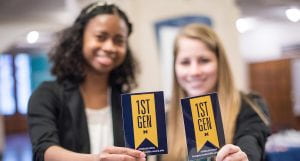Julionna Ledbetter
English 1102- 200- Weaver
Reflection Paper
05/04/21
Coming from a small private Christian school in Lilburn, GA, with less than 500 students in the high school, I always believed that the way people saw me or thought of me was all that mattered. This is ironic because, at a Christian school, one is constantly taught that the only opinion that mattered was God’s. As I look back at these four months and reflect on my academic self during the span of this course, I realized that even though I’m doing school online, behind a screen, miles away from anyone else, I continued the same trend of only showing people the best rather than the truth. So in this reflection, I would like to reintroduce my academic self and values as well as explain how this year has truly changed me as a person and writer.
For the Major 1 project, I told my partner that I was passionate, flexible, and productive. Those aren’t awful responses and if you knew me, you would say those weren’t bad answers to define me. Sure I’m passionate about learning, and I can be flexible sometimes, and I have moments when I’m productive with my school work. The problem is, four months ago I never made an effort to discover what my academic self was like, I simply looked for the most obvious put-together answers. However, throughout the course, I was able to dive deeper into my academic self. Therefore, three words that genuinely describe my AS would be procrastination, dedication, and perseverance.
I am a huge procrastinator, especially when it comes to writing. I don’t have troubles in any other aspect of academics but when I have to write a paper I try my hardest to push it off. I had come to terms with the fact that writing wasn’t my thing and I just wasn’t a good writer. The one thing that brought me out of this mindset was the class reading “Some People are Just Born Good Writers “ by Jill Parrott. In her essay about bad ideas about writing, she pushed against the idea of “good writers”, stating that “good writers are not born. They are learned” (Jill Parrott, 74). Her essay identified many of my wrong ideas about writing, particularly the fact that I don’t like messing up and I prefer getting things done the first time rather than trying again. This essay taught me that in order to learn while writing, one must make multiple mistakes and reflect on them. In reality, writers don’t get things right the first time, and having to redo drafts is perfectly normal.
Dedication and perseverance are also accurate descriptors of my year. At this point in my academics I feel burnt out and the motivation that once was so vivid is slowly dying out. Despite all of my emotions towards the school I have stayed dedicated to my studies and persevered when I wanted to give up. This speaks volumes to my character but also to life. What once gave me joy could, in a blink of an eye, cause me emptiness. Through this, I have discovered the importance of my “why” over the “what” in academics. “What” I am doing school for is simple. I do it for a degree, to hopefully get a lot of money in the future, and make my family proud. Everyone has a “what” but it’s difficult for people to conjure up a “why”. Why do you endure four more years of higher ed after just completing high school? Why are you going to college when you could just make money like your other friends? The “what” will cause you to get burnt out and to lose your purpose but the “why” will sustain you for the whole race. This semester I have been trying to evaluate my why to academics and why I stay even though many days I don’t want to. I pursue higher education because I desire to connect with people from various backgrounds, perspectives, beliefs, and thought processes. This is essential for me because ever since this point, my life has been one-sided and I hope by going to college and pursuing a major I will learn to love and care for people that are utterly different from me. That is my why, it may seem odd to some people but it is rooted in who I am. It may change in the future but for now, this is my motivation. I hope whoever else reads this is encouraged to discover their own why.
Source cited:
Parrott , Jill. “Some People Are Just Born Good Writers.” Bad Ideas About Writing , 2017,
textbooks.lib.wvu.edu/badideas/badideasaboutwriting-book.pdf.


